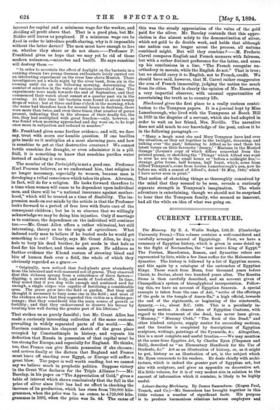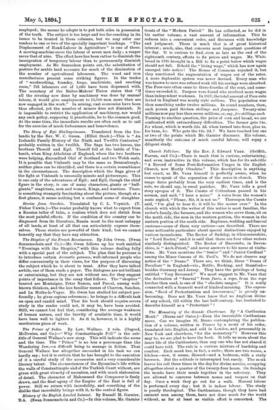Labour - Saving Machinery. By James Samuelson. (Kegan Paul, Trench, and Co.)—Mr.
Samuelson has brought together in this little volume a number of significant facts. His purpose is to produce harmonious relations between employers and employed ; the means he adopts is to put both sides in possession of the truth. The subject is too large and too far-reaching in its issues to be treated in these columns, but we may refer our readers to one or two of the specially important headings. " The Displacement of Hand-Labour in Agriculture" is one of these. A mowing-machine saves the labour of seven men daily ; a reaper saves that of nine. The effect here has been rather to diminish the immigration of temporary labour than to permanently diminish employment. As Mr. Samuelson points out, the substitution of pasture for arable land accounts for much of the diminution of the number of agricultural labourers. The wood and iron manufactures present some striking figures. In the trades of " woodworking, foundry, forge, machinists, and erecting room," 735 labourers out of 1,030 have been dispensed, with. The secretary of the Boiler-Makers' Union states that "if all the riveting now done by machinery was done by manual labour, it would give employment to 15,000 men more than are now engaged in the work." In mining, vast economies have been thus effected, yet the number of miners does not diminish. It is impossible to restrict the application of machinery, nor would any such policy, supposing it practicable, be to the common good. At the same time, the immediate results are often such as to call for the exercise of much forbearance and benevolence.







































 Previous page
Previous page